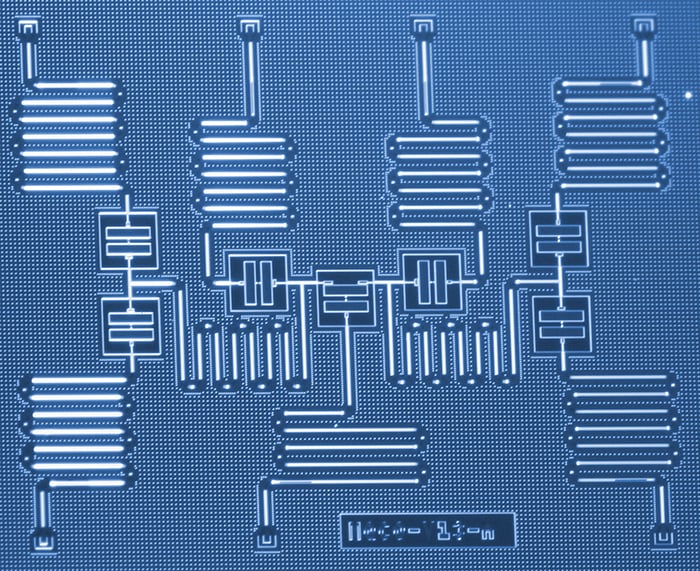We just got a little closer to building a computer that can disrupt a large chunk of the chemistry world, and many other fields besides. A team of researchers at IBM have successfully used their quantum computer, IBM Q, to precisely simulate the molecular structure of beryllium hydride (BeH2). It's the most complex molecule ever given the full quantum simulation treatment.
Molecular simulation is all about finding a compound's ground state—its most stable configuration. Sounds easy enough, especially for a little-old three-atom molecule like BeH2. But in order to really know a molecule's ground state, you have to simulate how each electron in each atom will interact with all of the other atoms' nuclei, including the strange quantum effects that occur on such small scales. This is a problem that becomes exponentially harder as the size of the molecule increases.
While today's supercomputers can simulate BeH2 and other simple molecules, they quickly become overwhelmed and chemical modellers—who attempt to come up with new compounds for things like better batteries and live-saving drugs—are forced to approximate how an unknown molecule might behave, then test it in the real world to see if it works as expected.
The promise of quantum computing is to vastly simplify that process by exactly predicting the structure of a new molecule, and how it will interact with other compounds. In work published today in Nature (paywall)—and also available on the Arxiv (PDF)—the IBM team have shown that they can use a new algorithm to calculate the ground state of BeH2 on their seven-qubit chip.
In some ways, it's a small advance. But it's an important step on the path of ever-greater complexity in molecular simulation using quantum computers that will ultimately lead to commercially important breakthroughs.
Even now, as the research team notes in their blog post on the work, IBM offers access to a 16-qubit quantum computer as a free cloud service. The more qubits a chip has—that is, quantum bits that can be used to encode data in multiple states at once—the greater the complexity of calculations it should be able to handle. At least in theory. As we pointed out when we made practical quantum computers one of our Breakthrough Technologies of 2017, one of the big challenges in designing quantum computers is making sure qubits remain in their delicate quantum state long enough to perform calculations. The more qubits a chip has, though, the harder that has been for researchers to do.
Still, the day when quantum computers surpass classical machines—an inflection point known as quantum supremacy—is rapidly approaching. Some observers think a chip with 50 qubits would be enough to get there. And while the chemistry world stands to benefit immensely from such advances, it isn't the only field. Quantum computers are expected to be superstars at any kind of optimization problem, which should help propel big advances in everything from artificial intelligence to how companies deliver packages to customers.

